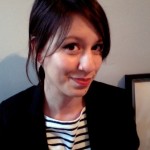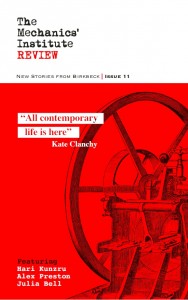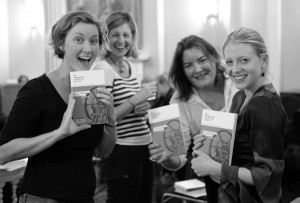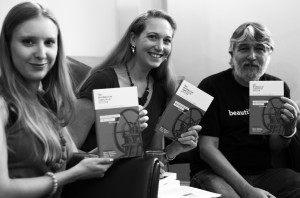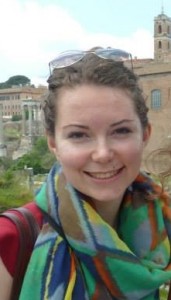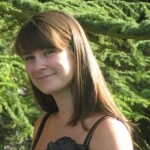 This post was contributed by Jen Reid, a PhD student in Birkbeck’s Department of English and Humanities. She writes about her experience of a research placement at the Sam Wanamaker Playhouse.
This post was contributed by Jen Reid, a PhD student in Birkbeck’s Department of English and Humanities. She writes about her experience of a research placement at the Sam Wanamaker Playhouse.
My three months as part of the Globe Research team were varied and stimulating: in what other role would you find yourself reading sixteenth-century midwifery manuals one week, scouring the internet for pictures of apothecaries another, and editing play scripts for upcoming productions the next?
The research interns take on tasks and answer queries from inside and outside the Globe, so every day was different – which is not surprising given the Globe’s own commitment to a range of activities, not only putting on productions but educational work with local schools, exhibitions and scripted performances of rarely performed plays. Not everything we did related to research; on one occasion we compiled an online resource for schools studying Othello, and on another I provided scene summaries for excerpts from around fifteen plays for Globe Education’s event programme. On my last day, I was asked to find manor houses in the Cotswolds with a historical connection to the theatre as part of the preliminary planning stages for the ‘Read Not Dead’ on the road events. I even helped out at the ‘Concert in Winter’ event, stewarding nursery school children to and from their performance on the Globe stage itself of ‘Engine Engine Number Nine’.
Most of the time, though, we were given research tasks. Sometimes these were about plays just about to open, for the company lecture or for the director to clarify points of performance. In my second week, for example, we were asked to look at ideas of sexuality, pregnancy, and love at first sight for the winter production of The Changeling which was due to begin a few weeks afterwards. Usually there would be a few of us in, so we would divide up the research topic between us: I looked at early modern pregnancy. The aim would be to draw up a report between us by the end of the day, tailored to the requirements of whoever had requested the research, and including pictures as well as summaries of the topic and suggested further reading. I enjoyed these jobs the most, as they afforded an opportunity not often encountered while doing a degree, to spend just a few hours hunting out the salient details of a subject, before moving on to the next. Not only that, it was exciting to know that, for example, our research document exploring sixteenth-century English xenophobia would be helpful for director Jonathan Munby deciding when to set his production of The Merchant of Venice, opening at the Globe in late April, or that our report on eighteenth-century madness could help furnish historical background for Claire van Kampen’s Farinelli and the King.
Undertaking the placement during the winter season meant that I witnessed the excitement surrounding the new Sam Wanamaker indoor theatre, which opened early last year, and we had the opportunity to be part of the projects surrounding this new venture, for example by conducting and transcribing audience and actor interviews. We were by no means confined to productions in the Sam Wanamaker, however, and particularly in the new year, many of our tasks related to productions on the Globe stage during the upcoming summer season. This meant we got a great opportunity to get a sense of the different demands and considerations for the two stages: anyone interested in the day-to-day running of a theatre as well as in early modern research would enjoy the experience as thoroughly as I did.
. 1 comment . Category: Arts . Tags: early modern research, Globe research placement, student experience, theatre, work experience

